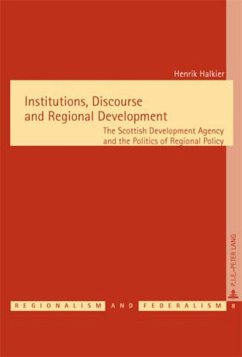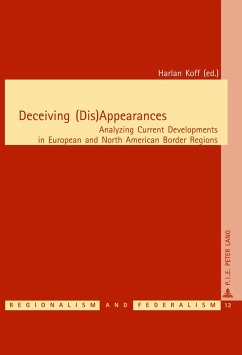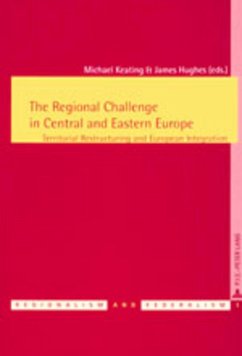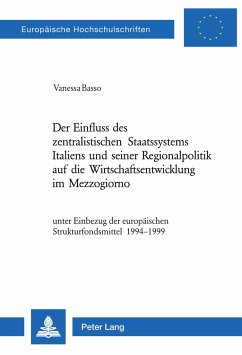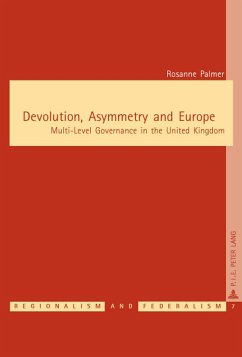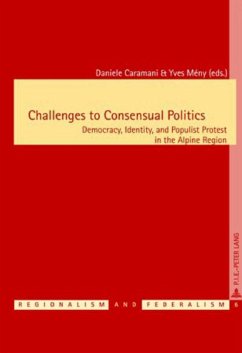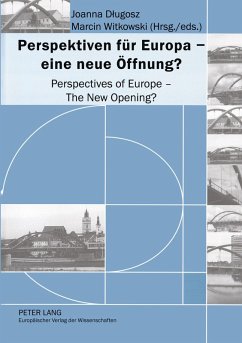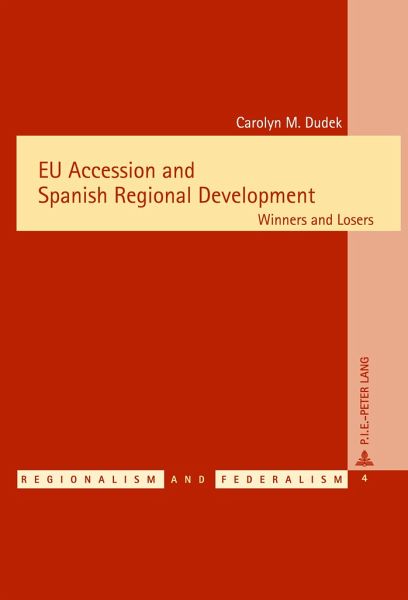
EU Accession and Spanish Regional Development
Winners and Losers
Versandkostenfrei!
Versandfertig in 6-10 Tagen
39,95 €
inkl. MwSt.

PAYBACK Punkte
0 °P sammeln!
Policymakers saw European Community membership as a way for Spain to secure democracy and promote economic development throughout the country. Nevertheless, regional economic disparities still persist in Spain almost twenty years after it entered the Community, despite significant European allocation of funds to remedy underdevelopment. How did the policies of the European Union impact Spain? What lessons can new EU members learn from Spain's experience within the European Union?Using rich empirical evidence and an innovative comparative analysis, this book examines the regional experiences of...
Policymakers saw European Community membership as a way for Spain to secure democracy and promote economic development throughout the country. Nevertheless, regional economic disparities still persist in Spain almost twenty years after it entered the Community, despite significant European allocation of funds to remedy underdevelopment. How did the policies of the European Union impact Spain? What lessons can new EU members learn from Spain's experience within the European Union?
Using rich empirical evidence and an innovative comparative analysis, this book examines the regional experiences of Galicia and the Valencian Community in Spain. The political dynamics and persistence of clientelism, which affect policymaking and policy implementation within each region, are particularly considered. These cases provide new insight to explain why regional economic differences persist in Spain despite efforts to alleviate them.
Historically grounded and detailed, this study analyzes the process of accession and the ignored long-term ramifications of accession negotiations and treaties, it focuses on the often-overlooked contradiction between European regulations and regional development policies, and questions whether EU membership has been as beneficial as policymakers thought it would be.
Using rich empirical evidence and an innovative comparative analysis, this book examines the regional experiences of Galicia and the Valencian Community in Spain. The political dynamics and persistence of clientelism, which affect policymaking and policy implementation within each region, are particularly considered. These cases provide new insight to explain why regional economic differences persist in Spain despite efforts to alleviate them.
Historically grounded and detailed, this study analyzes the process of accession and the ignored long-term ramifications of accession negotiations and treaties, it focuses on the often-overlooked contradiction between European regulations and regional development policies, and questions whether EU membership has been as beneficial as policymakers thought it would be.



